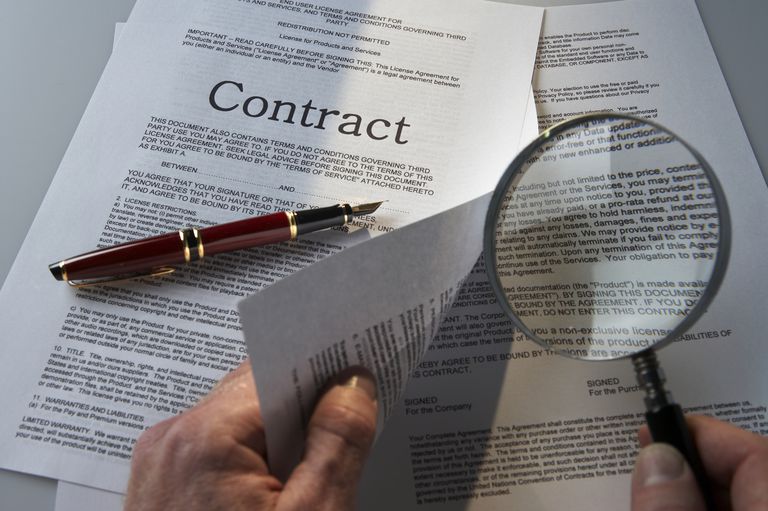You are handed a business contract and told, “Sign here!” Don’t do it! Read the contract carefully, following these guidelines, to avoid problems later.
Whether it is a real estate contract, business sale agreement, employment contract, or contract between you and a customer or vendor, you can use these guidelines to avoid problems.
First, Agree on Definitions
All major terms must be defined completely.
Much difficulty in contracts comes from incomplete or missing definitions. In one case, an an unclear definition of “overhead“ in the calculation of payment to an independent contractor caused a lawsuit.
Don’t Assume – Ask for Clarification
Assumptions are really the most difficult part of any contract. You read a contract that includes a section on how the value of property is determined. Even if you think you know what has been written, ask for an example, or ask a question like, “Just to clarify, I think this means X. What do you think it means?”
Don’t worry about appearing dumb or difficult; better to clarify now than find out later you and the other party were thinking of two different meanings.
Ask “What is Missing?”
This part is tricky; it is difficult to know what should be in a contract but isn’t. In employment contracts, for example, there is a section describing how the employer can terminate the contract and what notice must be given.
Take a look at this Employment Contract Terms article for an example of the sections in a typical contract.
If you don’t see something that should be in the contract, make sure it gets in.
Read “Boilerplate” Carefully and Don’t Be Afraid to Change It
Boilerplate is so-called “standard” language that is usually prepared by an attorney to protect a client and which is difficult to read. In a contract, everything is negotiable, even “standard” language.
Read those long boilerplate sections, even if your eyes cross and you start to nod off. Ask that the section be simplified or that it be shortened. Don’t hesitate to make changes that clarify or which are to your advantage.
Finally, Get a Second Opinion
If you are reading a contract prepared by the other party, don’t rely on yourself or other non-attorneys to read the contract and find all the problems. Take it to an attorney who knows the law in your state.
Don’t let the attorney re-write it (they love to do that!), just to give you an opinion on what needs to be changed. Then take the list of changes back to the table and negotiate; let the other party pay for the changes.
Following these guidelines to reading contracts may not prevent you from making a mistake and signing a contract that will cause you problems, but it can eliminate some of the most obvious problems and provide clarification, which is always a good thing.
Source: https://www.thebalance.com/reading-business-contract-397812


